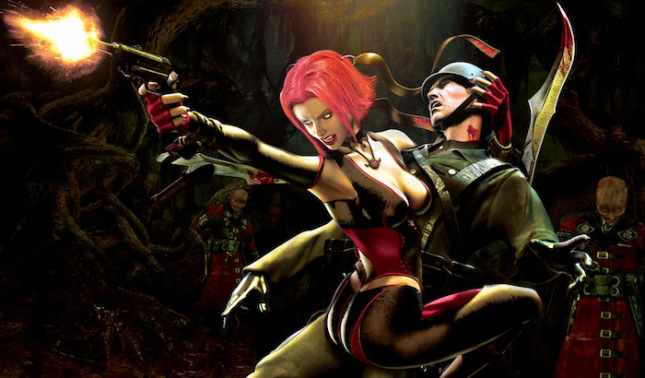 I recently had a chance to have a very Halloween-themed discussion with Josh Bridge, executive producer and creative lead at Capcom Vancouver on the Dead Rising 3 video game for the upcoming Xbox One console. Much of the conversation centred on zombies and why they seem to be everywhere in pop culture these days.
I recently had a chance to have a very Halloween-themed discussion with Josh Bridge, executive producer and creative lead at Capcom Vancouver on the Dead Rising 3 video game for the upcoming Xbox One console. Much of the conversation centred on zombies and why they seem to be everywhere in pop culture these days.
His take on it - which is detailed more fully in a piece I wrote up for the Globe and Mail - was intriguing, in that he blames (or credits) the trend to terrorism. The War on Terror, ongoing since 2001, has succeeded in kicking up a lot of fear and dread that is now manifesting itself in zombie fiction, he says. Zombie stories, after all, usually deal with themes such as unexpected disaster and man’s inhumanity to man.
Interestingly, I deal with another horror sub-genre - vampires - in my upcoming book Humans 3.0. Vampires are another kind of monster that, if you’ll excuse the pun, refuses to die. Like zombies, they seem to be everywhere in pop culture too. I spoke to legendary vampire author Anne Rice about why this is and her thoughts were illuminating:
People ask me that all the time and the answer for me is very simple, but we tend to talk around it. Anybody with a life of the mind identifies to a large extent with a vampire. Almost all of us feel like outcasts to some extent, alone in the midst of a crowd. We look human but we don’t always feel a communion with other human beings. That’s what the vampire represents in a lot of fiction; he’s a metaphor for the outcast.
I certainly feel like a predator and many people today feel like predators. We’re very aware of how our lifestyle in the West is dependent on the lifestyles of people in other parts of the world who have it much, much worse than we have it, and yet we don’t know quite what to do with it. We’re drinking their blood.
We’re also all in our minds immortal. We can’t conceive of our own death, it’s just not possible, and yet we’re living mortality every moment that we’re alive. The more I see people die and experience the death of those I’ve loved and the more time I spend in sick rooms seeing people die, the more I’m aware that death takes people unawares. There’s no way you can prepare for going into another country of existence or winking out as if somebody simply pinched a candle flame out. We like to imagine we’re vampires because we feel really comfortable doing that.
All of these different vampire writers will of course describe vampires in different ways and give them different attributes and so forth, but the core of it is almost always immortality, outcast, predator. Those three things. Each one hooks into the way people feel. That’s why the sub-genre of supernatural romance has originated, the idea of falling in love with one of those characters and his slowly bringing you over to his world and sharing his immortality with you, it’s a very modern wish. We all wish that death will be conquered in our lifetime.
Despite the continuing popularity of vampires in pop culture, there’s one medium in which they are notably absent for the most part: video games. There’s the Castlevania series in which Dracula is an ongoing villain, and there was the Bloodrayne franchise that seems to have largely petered out, but beyond that there isn’t much, which is entirely unlike zombies.
I asked Bridge what he thought and his answer was amusing: blame Twilight.
“There was a climb happening and Twilight took the cool out of it,” he says. “I couldn’t imagine trying to develop a vampire game under that because it would be immediately connected in articles and discussion because Twilight was so incredibly popular. Thank god they didn’t do it with zombies.”

trixxiii
October 30, 2013 at 12:30 am
I would prefer vampires as i just dont get zombies - i dont feel they can possibly ever be ‘real’.